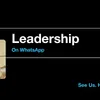Meet the women leaders engineering a new world at Uber
On International Women in Engineering Day (INWED), HerStory speaks to Megha Yethadka and Vidhya Duthaluru, women leaders at Uber, on their journey, women in tech, and why we need an inclusive environment.
Every year, June 23 is marked as International Women in Engineering Day (INWED) to celebrate the work and achievements of women engineers and highlight the career opportunities available in this field.
In 1943, three women engineers, A Lalitha graduated from Chennai’s College of Engineering Guindy (CEG) to become the first woman engineer in India, paving the way for other women in the field.
While engineering may be a conscious choice for both men and women in India today, the climb to the top is still hard for women. Many women drop out of the tech workforce due to various reasons like a non-inclusive environment, unconscious biases, and absence of returnship programmes and more.
According to a Belong survey that looked at all tech companies in the country, only 26 percent women were found in engineering roles, which is an abysmal number.
However, there are women who have risen to leadership positions through sheer grit, determination, and hard work, becoming role models for other women.
On this day for women engineers, we speak to two leaders from Uber – Megha Yethadka, Senior Director – Program Management, Tech; and Vidhya Duthaluru, Director – Engineering, to understand their passion and work.
Engineering many dreams

Megha Yethadka remembers that in the early 90s, her parents, who were entrepreneurs, brought home a computer that was almost a rarity at that time. With no science background, her mother enrolled in a course to learn coding and developed applications for her business.
“They encouraged me to take up Logo that was an optional course in school. Drawing a small image with Logo was fascinating to be able to build that logic and build solutions,” she recalls.
She went onto pursue Computer Science and Engineering at NIT-Jamshedpur and explore different tech roles throughout her career before joining Uber five years go.
Vidhya, who was raised in Mumbai, remembers being interested in science and mathematics during her childhood.
“I actually started out with a fascination about the world we live in, and the stars in the sky. I began stargazing with an old pair of binoculars and moved to a rudimentary telescope during my 10th grade. The biggest highlight of my childhood was spotting the Haley’s Comet in the polluted Mumbai skies,” she says.
She also remembers being excited about BASIC, Fortran, and Pascal – the first computer programs taught at school.
With a scientist father, the interest in science only peaked, and after completing her Bachelor’s in Bombay University, she received a PhD in electrical and computer engineering from Rutgers University. Vidhya’s career spans several top companies including Nuance and 24X7.ai.
The women recall being one of the few women opting for engineering during that time, but say they didn’t actively question and became conscious of the fact only years later.
“I remember an instance where I was the only woman in the team and had worked really very hard for a launch that was to happen at night. My manager, with good intentions, said, I didn’t have to stay back. I remember asking him why I shouldn’t as I have worked very hard for it.”
Vidhya says, she realised the skewed ratio only when she was doing her PhD.
Building solutions at Uber

Vidhya Duthaluru
At Uber for more than five years now, Megha leads the Global Scale Solutions team that cuts across all lines of business – the company’s mobility arm, Uber Eats, delivery, freight, and advanced technology divisions like UberAi.
“The focus of my team is to build and run scale programmes, including localisation, testing, data services, engineering services, digitisation, map editing, machine learning operations, and others,” says Megha.
Vidhya joined Uber in 2018 to build the Customer Obsession Engineering team. “It builds platforms for all Uber’s customer care and customer support across any line of business – ride sharing or Uber Eats, globally. It helps customers if they have a problem with their trip, also the agent facing side of tools, etc.,” she says.
Women in tech
Vidhya believes while there are more women opting for engineering, there are fewer women in leadership positions.
Megha explains the scenario is different for women as they still share a large burden of family responsibilities, like childcare and eldercare.
Interestingly, she joined Uber in her third trimester and says for a fleeting moment thought whether it was the right decision.
“I am lucky to have a supportive ecosystem both at home and the workplace. When I am using the word ‘lucky’, I am also being conscious that we still need to say lucky versus, this is the norm across companies and households,” she says.
While the trend is shifting, women still need to challenge the society’s dynamics and conditioning.
“If you look at the research in this space, particularly in diversity and inclusion, studies will show that women will apply for a role only if they feel they are 100 percent qualified and tick all boxes, while men will sign up if they think they are 60-70 percent qualified for it,” she adds.
The important thing, she says, is to challenge our own biases, conditioning, and invest in our own skills – whether it’s networking or negotiations.
An inclusive culture
Megha speaks of several programs at Uber-like employee resource groups, Parenting at Uber, Women at Uber that encourages people with similar life stages and challenges to come together.
Apart from these, Uber offers:
She ++ for STEM students - Promote Uber as a diverse and inclusive workplace for early in career WIT talent through showcasing our technical acumen and culture.
U4HER 2.0 - A program designed to solve for challenges involving women getting back to work after a sabbatical.
Engineering Sponsorships / Mentor Programs - Sponsorship program for women in tech, focussed on development and growth.
Also, Megha says, encouraging flexibility as a policy helps new mothers balance their responsibilities and not feel guilty about dropping one or the other and be successful on both fronts.
While the pandemic has given women the option of working from their homes, the flip side is they continue to face the additional burden of being primary caregivers.
“At Uber, we are sensitive to the needs of what our employees want. We are offering flexibility with timings, whether it’s being able to block calendars for a child’s online lesson or home responsibilities, because women have a lot going on in their lives,” says Vidhya.
Also, keeping safety in mind, Uber has started a vaccination drive for its employees so that they don’t have to take the risk of going to a public health facility to get vaccinated.
Women for women
Both Megha and Vidhya agree that they have benefitted immensely from strong mentors at different stages in their careers.
“It’s absolutely important for us to be able to give back and do the same thing for younger women entering tech and enables a good network so that they can avoid the pitfalls the previous generation faced,” Vidhya says.
“I often tell my mentees that when I was younger, I was not a really strong advocate of myself and that it came with years of learning. I tell them to be risk-takers and grab opportunities that come their way,” she adds.
In addition to mentorship, Megha emphasises on the importance of women watching out for each other as peers and buddies.
“I would advocate for women in tech receiving feedback and inputs from others – people who have your back. I have personally benefitted from both mentors and a peer network investing in each other’s journeys,” she says.
Edited by Megha Reddy









